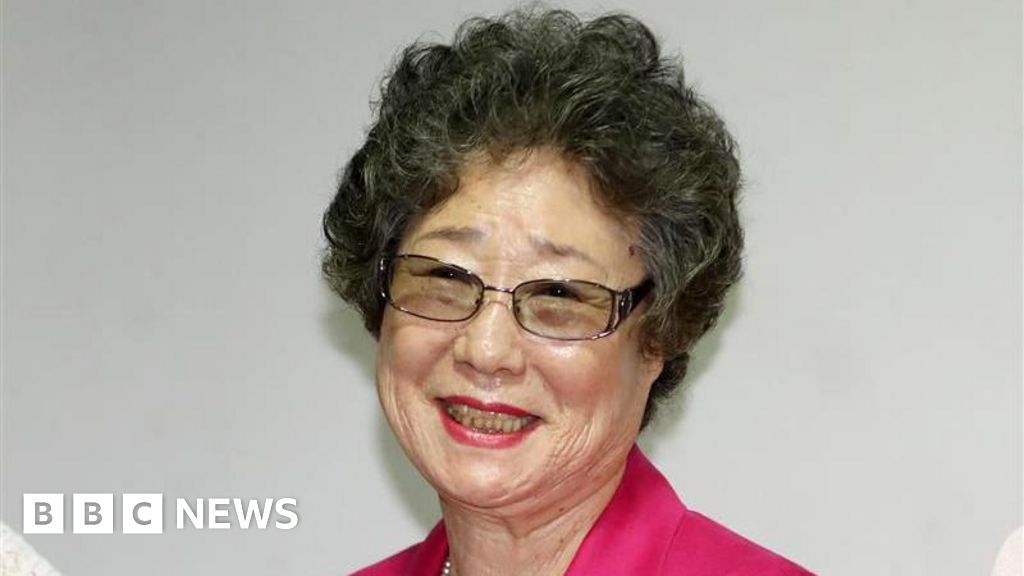A South Korean woman has been acquitted after a court revisited her decades-old conviction for biting off the tongue of a man during an alleged sexual attack.
Choi Mal-ja was 18 when she was convicted of grievous bodily harm and sentenced to 10 months in jail. Her aggressor, who was 21, received a lighter sentence of six months.
After a years-long campaign to clear her name, a retrial began in the southern city of Busan in July. In its first hearing, prosecutors apologised to her and, in an unusual move, asked the court to quash the conviction.
“I could not let this case go unanswered… I [wanted] to stand up for other victims who share the same fate as mine,” Ms Choi said after the acquittal.
As a teenager back then, the incident changed her fate by “turning [me] from a victim to an accused”.
“People around me warned me that it would be like throwing eggs at a rock, but I could not let this case go,” said Ms Choi, now 79.
She thanked her supporters, and called out those in power whom she said “abused their authority to trample the weak and manipulate the law”.
Ms Choi’s case has been cited in legal textbooks in South Korea as a classic example of a court failing to recognise self-defence during sexual violence.
According to court records, the attacker had pinned Ms Choi to the ground somewhere in the southern town of Gimhae. She only managed to break free after biting off about 1.5cm (0.59in) of his tongue.
The man continually demanded compensation for his injury and even broke into Ms Choi’s home with a knife on one occasion, South Korean media reported.
In one of South Korea’s most contentious rulings on sexual violence, the man was sentenced to six months in prison – suspended for two years – for trespassing and intimidation. He was never charged for attempted rape.
Ms Choi received the harsher sentence for causing him grievous bodily harm, with the court saying at the time that her actions exceeded the “reasonable bounds” of self-defence.
She was detained for six months during the investigation, and was later given a 10-month sentence, which was suspended for two years.
In 2018, inspired by the global #MeToo movement, which has also taken hold in South Korea, Ms Choi reached out to advocacy groups and spent about two years gathering evidence before filing a petition for a retrial.
Her path to exoneration has been challenging. Lower courts rejected her petition saying there is no evidence to support her claims of self-defence.
Ms Choi fought on, saying she did not want to see other victims of sexual violence go through what she did. “[They] should not have to bear the pain alone,” she told The Korea Herald in an earlier interview.
Finally, in December 2024, the Supreme Court granted her application to reopen the case.
Outside the court on Wednesday, Ms Choi and her supporters were all smiles, with some of them holding placards that said, “Choi Mal-ja did it!” and “Choi Mal-ja succeeded”.
Ms Choi’s lawyer, Kim Soo-jung, described the earlier conviction as a “misjudgement due to gender bias and societal perceptions”.
“Thanks to Choi Mal-ja’s relentless fight without ever giving up, the prosecution and judiciary had the opportunity to correct that error today,” said Ms Kim.
She added that Ms Choi plans to file a civil lawsuit against the state to seek compensation.
The Korea Women’s Hotline, one of the groups that had supported Ms Choi in her campaign, believes Wednesday’s verdict will pave the way to justice for victims of sexual violence.
“Going forward, women’s defensive acts will be understood as legitimate. I expect this will mean fewer women will face unjust suffering,” says Song Ran-hee, who leads the group.
“At the very least, it will send a message to victims. Even if the process you are going through now is painful and unjust, it says: ‘Your voice matters. Speak out,'” Ms Song tells the BBC.
There have been at least two other cases in South Korea of women biting off the tongues of sexual assailants – one in 1988 in the city of Andong, and another in 2020 in Busan. In both cases, the courts ruled recognised what the women did as legitimate acts of self-defence, and ruled in favour of them.
